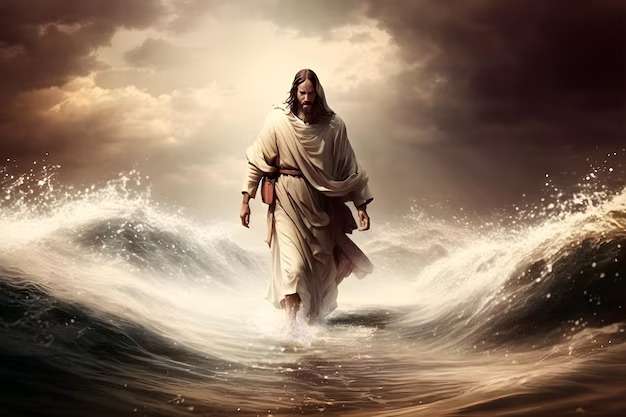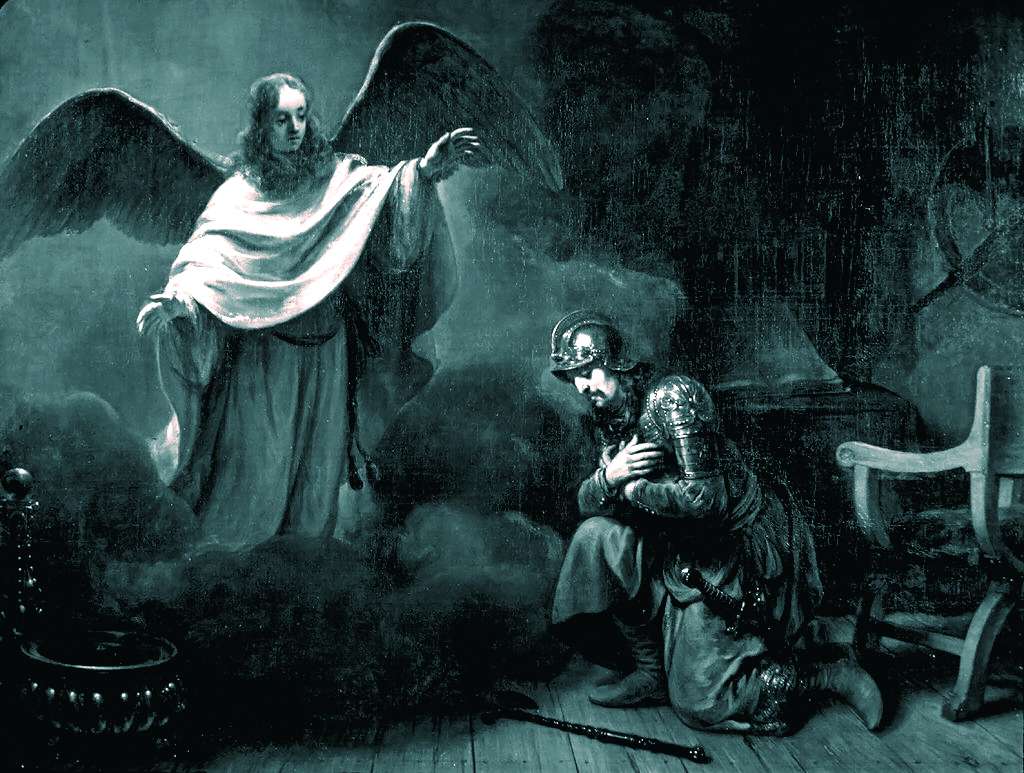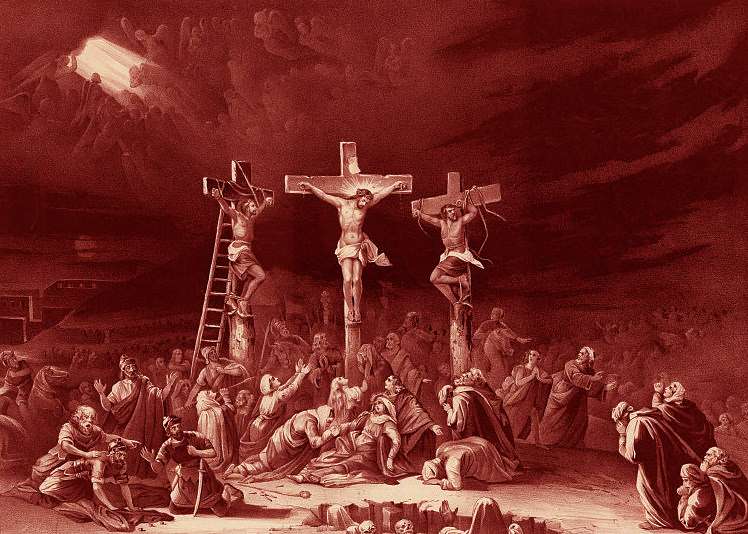

Gospel Message and Miracles
Dr. C. T. Luiskutty
In Acts Chapter 2 we read about the advent of the Holy Spirit in a manner never seen before and the beginning of the New Testament church. What is described in the following chapters is a manifestation of the power of the Holy Spirit, according to the promise of Jesus Christ just before His ascension (Acts 1:8). First, Peter who was timid until now, even to the point of denying knowing Jesus at the time of His trial, was empowered to make a bold and powerful speech about Jesus which led to the repentance and conversion of thousands. Also many wonders and miraculous signs were done by the apostles so that everyone was filled with awe (Acts 2:43). There was great fellowship among the believers which led to praising and worshiping God. There was a great change in their attitudes as they shared their possessions in order to meet the need of other brothers and sisters.
In Chapter 3, a specific miracle brought forth by the Apostles Peter and John in a public place (at the temple gate) in front of a large group of people is highlighted. In short, a lame man was healed, as they commanded him to walk in the name of Jesus Christ of Nazareth. People were astonished hearing about the miracle and they came running to the apostles. Now they are trying to deflect the general public’s attention away from them because they knew fully well it was not their power that caused the miracle, but the power of the Holy Spirit which was working through them. They used this opportunity to proclaim the gospel of the Lord Jesus Christ and lead them to salvation.
The miracle described here was not fake. The man was above forty years old; he was a fixture at the gate of the temple sitting or lying there daily, begging for alms. The people there knew the man well. His miracle was sudden, but not accidental. The apostles gave him something they possessed at the moment -- healing in the name of Jesus Christ. The man was ecstatic, the result of the miracle was evident and nobody was able to challenge the genuineness of what happened.
In Acts 2:43, it is recorded that many wonders and signs were done by the apostles even before this incident. But the healing of the lame man at the temple gate is the first one recorded in detail in the history of the church. What lessons can we learn from a study of this event?
1. It was a normal and familiar setting. The lame man was placed at the temple gate every day. For him it was a normal day. Even when the apostles came by, he did not expect something special, but a small amount of money to meet his needs.
2. The apostles were on their way to the temple for prayer. They were devoted followers of Jesus Christ following the Jewish custom of praying at the temple (in the temple complex but outside the actual building). They wanted to utilize every opportunity to praise and pray, especially with other like-minded people.
3. The lame man in a pitiable condition came to the apostles’ attention. The man was looking at them expectantly. The return look of the apostles was not casual; they fastened their eyes on him. While all the others perceived his apparent need for some money, the apostles were able to see beyond that. They drew his attention to them. This is unusual. In most cases the passers-by, even though they are going or coming out of the temple, ignore such beggars. Some may throw a coin in that direction. But Peter and John were entering into a conversation with him. He must have been glad they saw him. But still expected only a penny or two. The first part of Peter’s statement must have disappointed him. Peter said, “We have no money!” But he continued, “But we do have something else and we’ll give that to you.” It must have aroused his curiosity as well as that of the on-lookers. “If they don’t have any money, what is it that they possess to give to the beggar?” To the surprise of all of them, Peter said, “Jesus Christ from Nazareth gave me authority to do this. So I order you to rise up and walk.”
Peter and John knew the power of the name of the Lord Jesus Christ and the authority that they had been given by the Lord. Before giving the great commission to go and make disciples of all nations, Jesus told them, “All authority in heaven and on earth has been given to me.” A few days earlier, Jesus had told His disciples, “Just as the Father has sent me, so I am sending you.” On that occasion He breathed on them and there was a symbolic impartation of the Holy Spirit to them. Now they had the experience of being filled with the Holy Spirit on the Day of Pentecost, they have been sent by the Master with authority and the command given to exercise that authority and power. Finally the opportunity was here to exercise that authority and bring healing to a man in need.
4. The apostles acted in faith. Peter took the lame man by his right hand and lifted him. This shows their complete confidence in the name of Jesus Christ.
5. There was instantaneous healing which all could witness.
6. The healing enabled the hitherto lame man to enter the temple, and there was great joy, and resulted in spontaneous praising of God.
7. Peter and John used this miracle to draw the crowd’s attention to Jesus Christ. They boldly proclaimed the Gospel reminding them of their actions in the recent past. It was they who crucified Jesus, but God raised Him from the dead and now He is alive, powerful and active. The Gospel was not a new invention, but had its foundation on the Scriptures they professed to follow. Now they needed their sins to be blotted out. The Jesus who brought forth this great miracle is the One who will forgive their sins. All they needed to do was believe and repent and turn away from their sins. They were heirs of Abraham’s blessings, but had to receive them by faith in Jesus Christ.
This was an opportunity for Peter and John to project themselves as great miracle workers. It is quite possible that many other religious leaders, apostles, and even Jesus himself must have passed this way before. Peter and John accomplished something none of them had done. What an opportunity to present themselves as great miracle workers, demand respect from the on-lookers and even make some financial gains! Remember, they were men with no silver or gold!
But what they were interested in was meeting the great need of lame beggar, lifting up the name of the Lord Jesus Christ, proclaiming the Gospel that leads to repentance and bringing glory to God.
8. The acclaims that follow are short-lived. Soon the religious leaders got Peter and John arrested and were placed in custody overnight. Next day they were to stand trial before the religious court. They performed a miracle in the name of Jesus whom they had crucified; this offended the high priests and the religious folk. Jesus was presented as an example of God raising the dead; this offended the Sadducees, a major religious sect that did not believe in miracles or resurrection. The apostles were teaching the people the truth with the help of the Scriptures; this offended the rabbis and scribes as they were trying to suppress the truth. The Pharisees must be upset because of thousands were believing the Gospel preached by these former fishermen and accepting the New Way.
The disciples of Jesus Christ were under great pressure. The question they faced was, “By what power, or by what name, have you done this?”
9. Answer to this question was given to the general public the previous day. Now they got an opportunity to exalt the name of Jesus before the elite of the society. They did not perform this miracle in their own power, now they cannot satisfactorily answer their question in their own knowledge. They were uneducated (by the standard of the world) and common people. But the Holy Spirit came to their rescue. Peter, filled with the Holy Spirit spoke to them boldly and in an irrefutable manner. Peter’s answer reiterated the fact that it was the same religious leaders who crucified Jesus and a great visible miracle was performed by His authority.
10. The Jews believed in Jehovah, but not in Jesus; the Greeks and the Romans, who, probably, were listening had their own gods. But the ‘unschooled, ordinary’ men drew attention to the name of Jesus and emphasized that there was no other name by which they could be saved. This is the crux of the Gospel. If a miracle is performed in the name of Jesus, this truth must be proclaimed. Because of the living proof who was walking before them and glorifying God, the religious leaders had no option but to release the apostles.
What we learn from this event should be applied to our life and ministry today. What happened at the temple gate was not an isolated event. Many other miracles are recorded in the Acts of the Apostles and history of the church is replete with many similar stories. Even today God performs miracles.
Miracles are an integral part of the proclamation of the Christian gospel. Usually God performs a miracle to draw the attention of a group of people so that the opportunity can be used to proclaim the message of salvation. Usual miracles include instantaneous healing of severe sickness, restoration of a non-functioning limp or organ, or casting off demons. Many people (both the beneficiaries and the performers) consider a miracle as an end in itself. But God sees this as a means to draw attention to His power and mercy. Usually spectacular miracles are seen in places where people are not familiar with the message of Christ. We should not expect miracles all the time. Once a sickness was healed miraculously does not mean that that person will not be affected by the same or another disease ever, or always miraculous healing will occur. If a person’s allegiance to Christ is solely dependant on miracles, there is a good possibility that he or she would fall by the wayside soon.
Whatever is considered a miracle (supernatural exercise of faith, gift of healing, working of miracles -- see 1 Corinthians 12:9,10) is a gift of God to be operated by the Holy Spirit. It is not given permanently to anybody. And it should not be used for personal fame, financial gain or leverage for advancement.
The great attention given to Peter and John as a result of the miracle at the temple gate was utilized to preach the message of salvation. The visible miracle gave evidence to their trust in God and authority to exercise the power in Jesus’ name. The greatest benefit of this name is its power to bring salvation to a sinner and begin to transform him to the image of Christ. “But to all who did receive him, who believed in his name, he gave the right to become children of God” (John 1:12). Healings may come and go, demons may leave and return, financial fortunes may fluctuate. But the entry in to a position of a child of God is permanent as long as he or she believes in the name of the Lord and stays in close relationship with Him They will continually proclaim victoriously and joyfully, “See what kind of love the Father has given to us, that we should be called children of God; and so we are” (1 John 3:1). Visible physical miracles are of temporal value, but the miracle of salvation is of eternal value.
The world will not know (recognize, approve, honor) the children of God. Apostle John continued, “The reason why the world does not know us is that it did not know him” (1 John 3:1). Jesus came to His own and performed great miracles and they despised Him, rejected Him and crucified Him. Peter and John performed a great miracle. The consequence? Imprisonment, persecution, hard questioning and rebuke. But they rejoiced in it because they had the opportunity to lift the name of Jesus and bring thousands to faith in Christ. Later we see Paul and Barnabas in Lystra. There also a lame man was healed, and the people were ready to venerate them as gods. Paul restrained them and proclaimed the Gospel. Soon the enemies of the Gospel were able to turn the crowd against the apostles and they stoned Paul and left him for dead.
It should be emphasized that all miracles do not glorify God. If all our attention is on miracles, the devil may use some persons or media to perform what seems to be supernatural events. This is to deflect people’s attention away from Christ. A Divine miracle will bring honor to God; there is no room for ego there. People will be saved and set on a path of true discipleship of Christ -- a path of denying oneself, taking up the cross, and following Jesus every day wherever He leads. As they pursue this path and enjoy fellowship with Christ, they will be steadfast in their faith -- miracle or no miracle in their journey.















